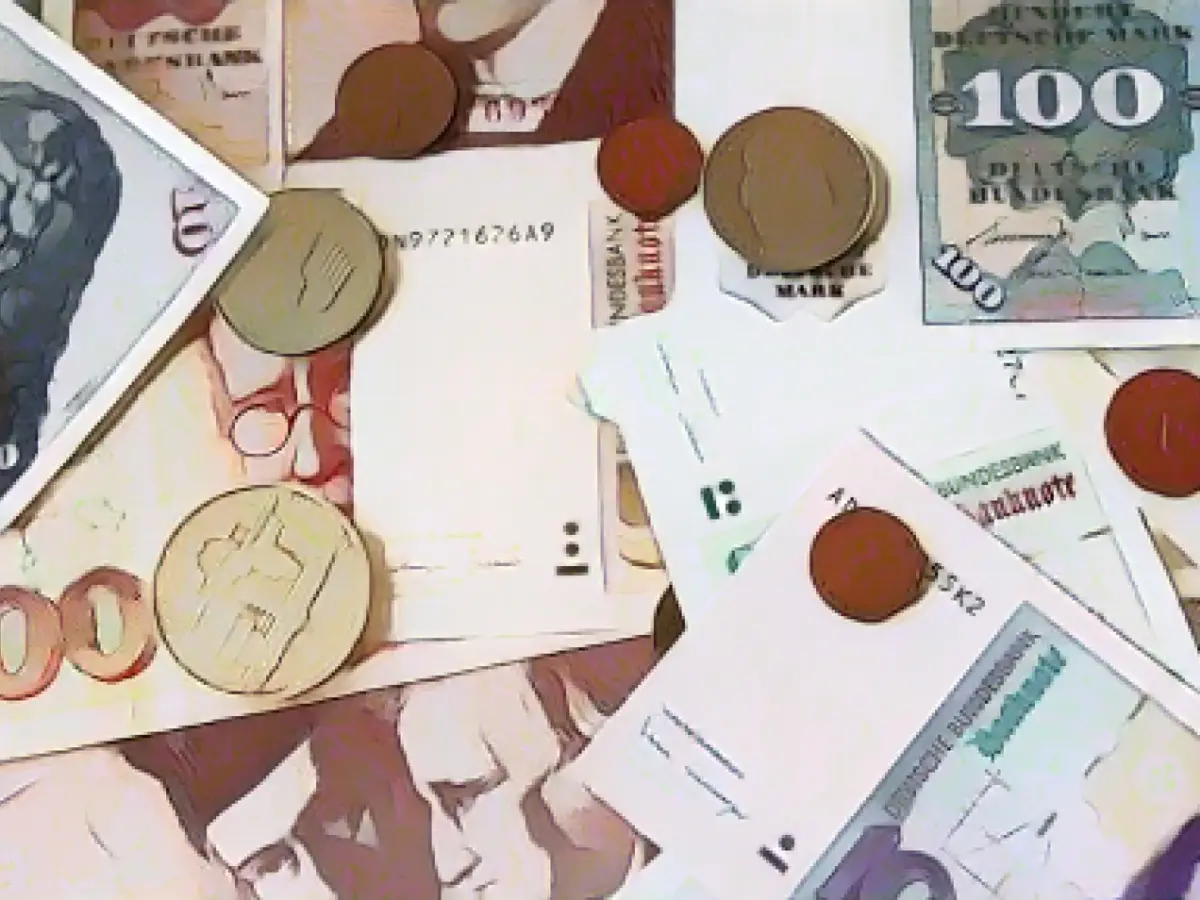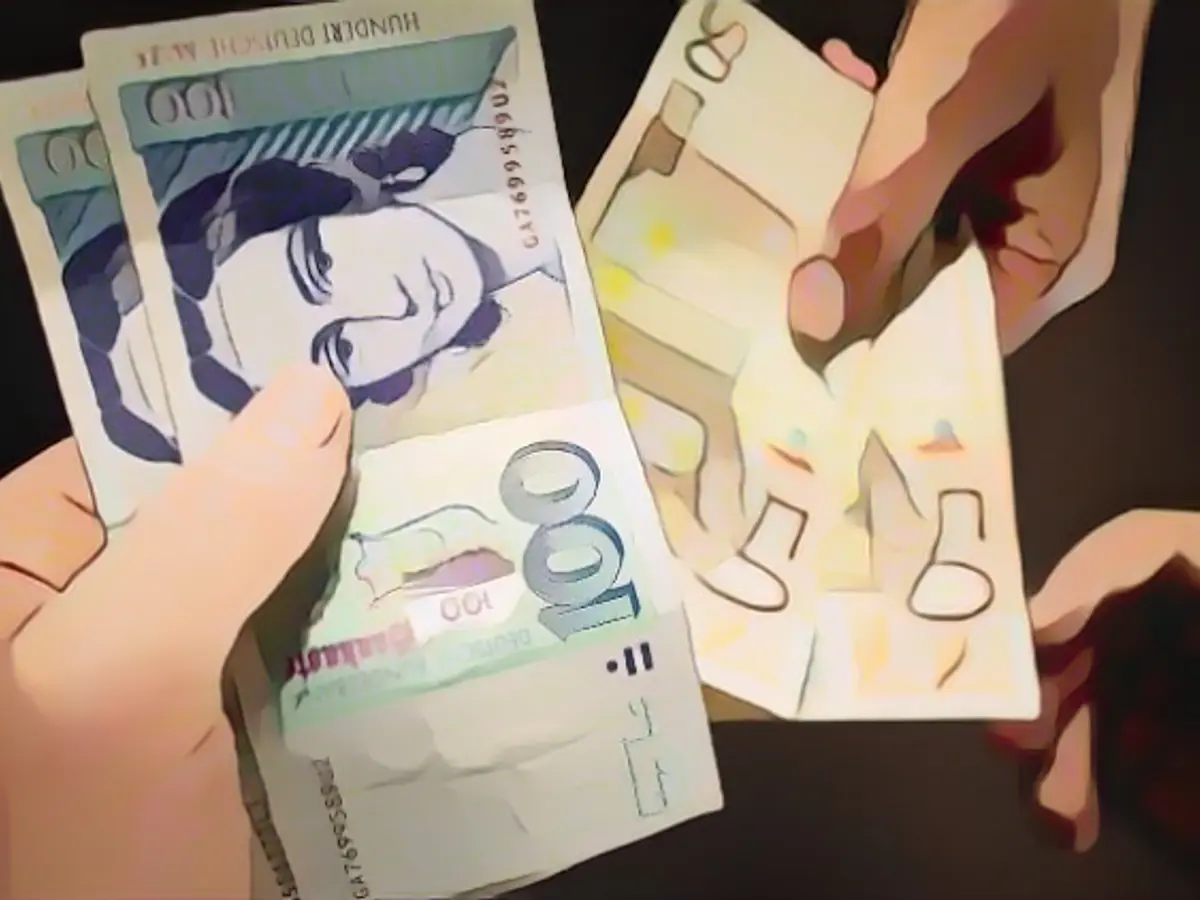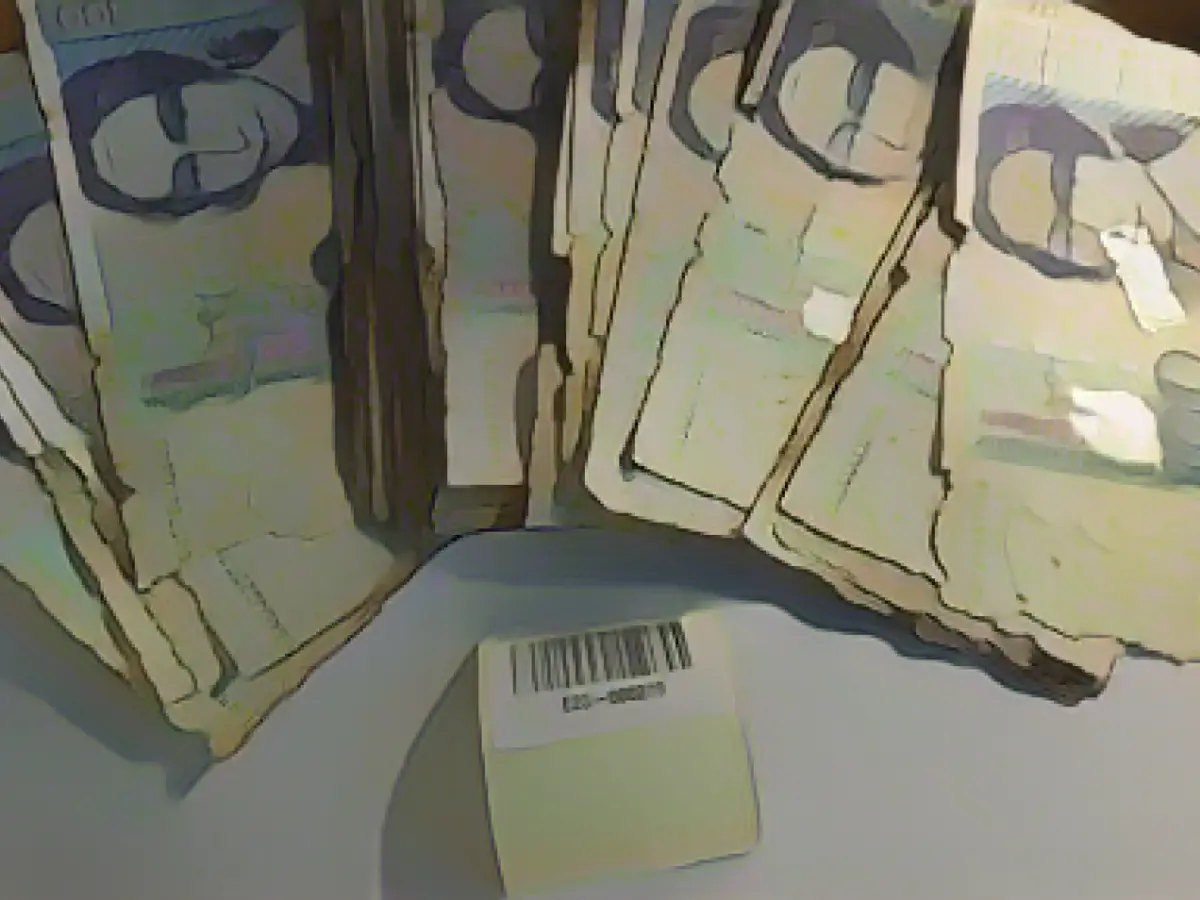Currency Swap in Saxony-Anhalt and Lower Saxony 💶
From spring cleaning to moving house or mourning the loss of a relative, Deutschmarks are still turning up in Saxony-Anhalt, only to be swapped for euros at the Bundesbank. As of November 30, a whopping 253,553.91 Deutschmarks had been exchanged at the Magdeburg branch, according to a spokesperson. This resulted in 129,640.06 euros being handed over after 771 exchanges, averaging approximately 328.86 Deutschmarks per exchange. Interestingly, the average amount per exchange was lower in 2023 compared to 2022, with patrons still bringing 411.65 Deutschmarks to exchange.
A 21-year legacy of Deutschmarks 📊
Twenty-one years since the introduction of euro notes and coins, the German Bundesbank is still grappling with a substantial amount of Deutschmarks outstanding, around 12.24 billion euros at the end of November 2023. This may seem significant, but it's a mere 4% compared to the amount circulating when the Deutsche Mark was in use. Unfortunately, the Bundesbank cannot provide an estimate of how many Deutschmarks are still in circulation in Saxony-Anhalt.
East vs. West Division 🇩🇪🇩🇪
It's evident that there is a clear difference between the eastern and western federal states when it comes to Deutschmarks. This is due to the Deutsche Mark only being introduced in the former GDR with economic and monetary union on July 1, 1990. Needless to say, this has caused significantly more exchange transactions in the Bundesbank branches of Lower Saxony than in Saxony-Anhalt to this day.
A look at the numbers: Magdeburg, Hanover, Oldenburg, and Göttingen have reported exchange transactions as high as 5 per day. The average sums are considerably higher in Lower Saxony than in Saxony-Anhalt.
The comeback of Deutschmarks 📈
While the COVID-19 pandemic had led to a significant drop in the number of Deutschmark exchanges, figures have since bounced back in 2023, much like the previous year. By the end of November, the Magdeburg branch had already processed 771 exchange transactions, an increase from 725 in 2022. The Bundesbank attributes this resurgence to the relaxation of pandemic-related restrictions at cash registers.
Looking ahead: The world of Deutschmark exchanges 🛐
Despite the rising numbers, one can expect the exchange business to continue for the foreseeable future, according to the Bundesbank. The reasons for finding Deutschmarks remain as diverse as ever: from spring cleaning to sorting through old clothes, or even the lucky discovery of leftover Deutschmarks by international visitors.
Whether you're in Saxony-Anhalt or Lower Saxony, the Bundesbank still offers the service of exchanging Deutschmarks for euros, without any fee and without a time or volume limit.
A note on Deutschmark exchanges in the news 📰
- A clan member is punished here [GHOST_URL/a-clan-member-is-punished-here/]
- Traffic lawyer warns: Don't talk to the police! [GHOST_URL/traffic-lawyer-warns-dont-talk-to-the-police/]
- Will he be convicted as Jutta's murderer after 37 years? [GHOST_URL/will-he-be-convicted-as-juttas-murderer-after-37-years/]
- He also wanted to kill his cousin [GHOST_URL/he-also-wanted-to-kill-his-cousin/]
Resource:
Enrichment Data: The introduction of the euro in 1999 marked the end of national currencies, including the Deutsche Mark (DM). By 2002, euro banknotes and coins started circulating, effectively phasing out the Deutsche Mark from everyday transactions. As the central bank of Germany, the Bundesbank would have transitioned to handling the euro by the early 2000s.
In reality, any remaining Deutsche Marks would have been exchanged for euros long ago. It is highly unlikely that any significant number of Deutschmarks are still being exchanged at Bundesbank branches, such as those in Saxony-Anhalt and Lower Saxony, due to the widespread usage of the euro in daily transactions.
[^1]: Deutsch marks still turning up to be exchanged at the Bundesbank in Saxony-Anhalt: [^2]: Bundesbank: 12.24 billion euros in Deutschmarks still in circulation: [^3]: Bundesbank statistics reveal more Deutschmark exchanges in Lower Saxony than in Saxony-Anhalt: [^4]: Bundesbank exchange business sees a resurgence as pandemic restrictions ease: [^5]: Bundlesbank continues to exchange Deutsche Marks for euros with no time or volume limit:







